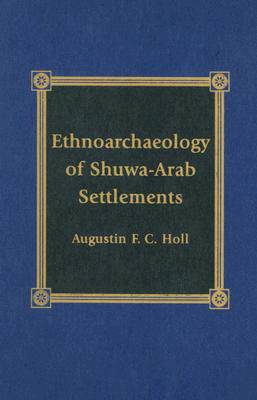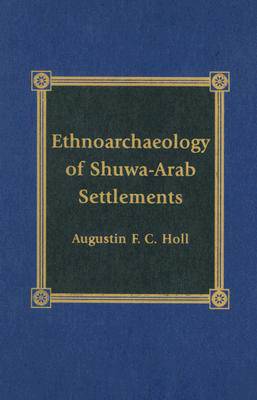
Door een staking bij bpost kan je online bestelling op dit moment iets langer onderweg zijn dan voorzien. Dringend iets nodig? Onze winkels ontvangen jou met open armen!
- Afhalen na 1 uur in een winkel met voorraad
- Gratis thuislevering in België vanaf € 30
- Ruim aanbod met 7 miljoen producten
Door een staking bij bpost kan je online bestelling op dit moment iets langer onderweg zijn dan voorzien. Dringend iets nodig? Onze winkels ontvangen jou met open armen!
- Afhalen na 1 uur in een winkel met voorraad
- Gratis thuislevering in België vanaf € 30
- Ruim aanbod met 7 miljoen producten
Zoeken
€ 150,95
+ 301 punten
Omschrijving
Ethnoarchaeology of Shuwa-Arab Settlements demonstrates the imperative need for ethnoarchaeology to include a deep sense of the history of the specific social group under analysis for its findings to truly impact archaeological thinking. Based on research from a long-term archaeological and ethnoarchaeological project conducted in the northernmost part of Cameroon, Augustin Holl's new work probes the ethnic survival of the Shuwa-Arab descendants of generations of pastoralists who migrated from Arabia to the Chad basin. The book robustly engages macro issues connected to processes of sedentarization, ethnic interaction in a multi-ethnic setting, and relations of power and dominion. On the micro level the work deciphers clues for the cultural survival and later prosperity of the Shuwa-Arab hidden in the material record of their daily settlement life. This book will be of great interest to students of African history, African studies, archaeology, ethnoarchaeology, and ethnic and cultural studies seeking to understand how to successfully integrate history into the interpretation of the archaeological record.
Specificaties
Betrokkenen
- Auteur(s):
- Uitgeverij:
Inhoud
- Aantal bladzijden:
- 418
- Taal:
- Engels
Eigenschappen
- Productcode (EAN):
- 9780739104071
- Verschijningsdatum:
- 25/03/2003
- Uitvoering:
- Hardcover
- Formaat:
- Genaaid
- Afmetingen:
- 178 mm x 236 mm
- Gewicht:
- 693 g

Alleen bij Standaard Boekhandel
+ 301 punten op je klantenkaart van Standaard Boekhandel
Beoordelingen
We publiceren alleen reviews die voldoen aan de voorwaarden voor reviews. Bekijk onze voorwaarden voor reviews.











